Photos
Die neue Plattform aus Deutschland ist spezialisiert auf Fachkräfte aus aller Welt.
The new German platform specialises in attracting professionals and skilled workers from around the world.
Die Internet-Plattform vermittelt internationale Fachkräfte in den deutschen Arbeitsmarkt.
Using the Internet platform, job-seekers from around the world can find employment in the German labour market.
Komfortable Bedienung auf sämtlichen Endgeräten.
Easy to use on all devices.
Ein aussagekräftiges Fachkraft-Profil erhöht die Vermittlungschancen.
An informative business profile increases the chances of finding employment.
Die Fachkraft-Profile sind auch von unterwegs jederzeit zugänglich.
Skilled worker profiles can be accessed anywhere, anytime.
Logo
Employland logo (positive)
Employland logo (negative)
Other formats available upon request.
Fact sheets
Increasing demand for skilled labour through demographic development
Germany lacks skilled workers. These days, companies from a wide range of industries in Germany are having difficulties filling vacancies adequately, or are not able to fill them at all. In the coming years, the skills deficit will increase, especially with regard to mathematicians, IT consultants, natural scientists and technicians (MINT) as well as in the health and care sector. The demand is also high in commercial and technical professions.
There are shortages of both academics and non-academics. In particular, the demand for skilled MINT workers with vocational training is increasing significantly. Thus, the number of active skilled workers will drop by almost one million by 2025. The health and care sector will have a shortfall of around 56,000 doctors and a further 140,000 non-academic skilled workers by 2020.
Germany as a location for business
With the highest gross national product and the largest population, Germany is - economically speaking - the most powerful member country of the European Union, and is also one of the most attractive business locations in the world.
In the current ranking of the World Economic Forum, Germany lies fifth in an international comparison. Germany, with its competitive industrial sector and its position as a safe haven for financial investors, even survived the global financial crisis quite well. After 2009, it quickly recovered economic activity and saw strong export results. Germany also enjoys an outstanding global business position in science, research and development. "Made in Germany" is still considered a guarantee of quality.
Attractive for immigrants
In recent years, Germany has become one of the world's most popular destination countries for immigrants. While the Federal Republic of Germany was reporting a net outflow just a few years ago, according to the OECD, the country has now become the second most popular immigration country after the USA.
2 million immigrants in 2015 are a clear indication that Germany is still very attractive for migrants. The Cologne Institute for Economic Research talks of “record immigration” for Germany. The high number is therefore not just attributable to the high level of refugee migration. Refugees accounted for less than half of all immigrants in 2015. The encouraging situation on the labour market and the openness of society are, according to experts, the main reasons for the strongest immigration in the history of the Federal Republic.
Federal Government measures
One of the key factors of economic growth potential is a country’s labour supply. Given the existing and increasing deficit of qualified workers in Germany, politicians, social partners and companies all agreed that acquiring well-trained skilled personnel is one of the key challenges for Germany in securing a strong long-term economic performance. In 2011, the Federal Government therefore decided on a concept for the safeguarding of skilled workers and professionals. The concept focuses on the use of domestic potential and the promotion of immigration for qualified workers.
The Qualified Professionals Initiative initiated in June 2012 by the Federal Ministry of Economics and Technology (BMWi), the Federal Ministry of Labour and Social Affairs (BMAS) and the Federal Agency for Employment (BA) accompanies and complements the Federal Government's skilled worker plan.
Improved conditions for immigration
In order to become more successful in competing with other countries for foreign talent, the Federal Government has improved the basic conditions for immigration. Compared to the rest of the world, Germany’s immigration rules for skilled workers and professionals are very open these days, and this has also been confirmed by the OECD, among others.
In 2012, an attractive residence permit was created for university graduates from third countries and their relatives, namely the EU Blue Card. Professionals with university degrees can receive the card if they can prove that they earn more than 50,800 euros (2017) a year in Germany.
Immigration from third countries into non-academic shortage occupations
Over the last few years, The Federal Republic of Germany has “transformed itself into a modern country of immigration” with rapid political change, and today is one of the “most liberal countries in the entire OECD” with regard to labour migration. Germany has not only improved its basic conditions for highly qualified persons immigrating from third countries (countries outside the EU & EFTA). With the revision of the Employment Ordinance in 2013, immigration from third countries was also made possible for non-academic shortage occupations.
Immigration is easiest when the occupation or occupational group is listed in the so-called “whitelist” of the Federal Employment Agency (BA).
